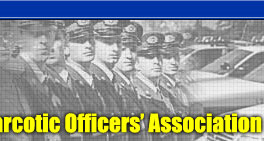


 Commonwealth v. Paul
2007 PA Super 134, ___A.2d___ Decided: May 15, 2007
The Superior Court reversed a lower court's reduction of a mandatory sentence, because the arresting officer had not engaged in sentencing entrapment.
<-- Return to Legal Updates
On July 17, 2005, as part of an undercover drug operation, Paul sold an undercover officer 3.4 grams of methamphetamine. Rather than arrest the suspect at that time, the officer chose to postpone the arrest in an attempt to solicit a larger sale from Paul so that the amount sold would be large enough to induce a longer mandatory sentence. The officer contacted Paul several times over the course of the next three weeks, attempting to solicit a larger amount of methamphetamine. Paul initially refused to sell the undercover officer the larger amount, but eventually agreed to the sale. On August 6, 2007, Paul delivered to the officer the equivalent of two "eight balls," or approximately 6.8 grams of methamphetamine. Paul was arrested at that time. At the trial, the sentencing guidelines required that the trial court give Paul a mandatory three year minimum sentence, because Paul had sold the undercover officer more than 5.0 grams of methamphetamine. However, the trial court granted Paul a reduced sentence of less than three years, because it believed that the undercover officer had engaged in sentencing entrapment. The trial court stated that sentencing entrapment occurs when an officer purposefully asks to purchase a quantity of drugs in excess of a threshold amount so that the court will be required to give the defendant a more severe or mandatory sentence. On appeal, the Superior Court held that the conduct that the officer had engaged in was not sentencing entrapment. The court said that sentencing entrapment only occurs when there has been "extraordinary misconduct" on the part of the police officer. In addition, there is a heavy burden placed on defendants by the courts to prove that sentencing entrapment has occurred. It is not enough for the defendant to prove that the criminal action that occurred was prolonged by the police for the purpose of crossing some mandatory sentencing threshold. The defendant must prove that the government engineered the entire criminal situation from beginning to end and the defendant was merely a bystander. Sentencing entrapment only occurs when the conduct of the government is "so grossly shocking and so outrageous that it violates the universal sense of justice." Because the Superior Court held that the officer was not engaging in sentencing entrapment, the reduced sentence given to Paul by the trial court was reversed and the harsher mandatory three-year sentence was imposed. |













